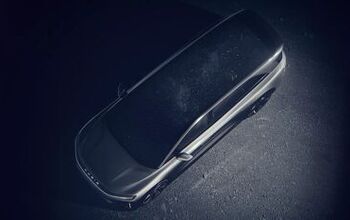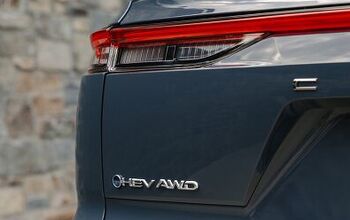Apparently, Mller Wasn't As Interested In FCA Partnership As We Thought
To say that there was some speculation surrounding Volkswagen CEO Matthias Müller’s response to a potential partnership with Fiat Chrysler Automotive would be a severe understatement.
Müller said there had been no contact between he and FCA CEO Sergio Marchionne, but he’d not ruled anything out. He seemed to have an indifference about the subject, which left plenty of room to let minds wander.
According to Automotive News’ Larry P. Vellequette, that’s not the whole story.
Being at the conference, Vellequette saw and heard — through an interpreter, he says — the entirety of this soap opera episode play out.
Vellequette said Müller and VW are too “preoccupied” dealing with the aftermath of the company’s diesel scandal, and had “no interest” in talking to Marchionne.
But what came next, Müller mentioning Marchionne by name and saying the FCA CEO should talk to him directly instead of through the press, is up for debate, as Vellequette heard a certain tone in Müller’s remark. From AN:
“It would be very helpful if Mr. Marchionne were to communicate his considerations to me too and not just to you,” Mueller said a bit snippily. (Admittedly, the snarky tone I heard through a translator may not have been in the original German, but still … )
Here, Müller is not opening a door. Instead, the remark was a glove across Marchionne’s face, insinuating the FCA CEO didn’t have the nerve to talk to him directly.
Müller does have a lot on his mind now, so it only seems fitting he would have a short temper toward Marchionne. Even optimistically speaking, it’s unlikely FCA and VW will team-up, especially after the resounding “no” from Müller.
Marchionne must have felt that slap from Müller, since he tried to break up before the relationship even started.
[Image: Volkswagen AG/Wikimedia Commons (CC BY 3.0)]
More by Tyler Wooley
Latest Car Reviews
Read moreLatest Product Reviews
Read moreRecent Comments
- Dave M. IMO this was the last of the solidly built MBs. Yes, they had the environmentally friendly disintegrating wiring harness, but besides that the mechanicals are pretty solid. I just bought my "forever" car (last new daily driver that'll ease me into retirement), but a 2015-16 E Class sedan is on my bucket list for future purchase. Beautiful design....
- Rochester After years of self-driving being in the news, I still don't understand the psychology behind it. Not only don't I want this, but I find the idea absurd.
- Douglas This timeframe of Mercedes has the self-disintegrating engine wiring harness. Not just the W124, but all of them from the early 90's. Only way to properly fix it is to replace it, which I understand to be difficult to find a new one/do it/pay for. Maybe others have actual experience with doing so and can give better hope. On top of that, it's a NH car with "a little bit of rust", which means to about anyone else in the USA it is probably the rustiest W124 they have ever seen. This is probably a $3000 car on a good day.
- Formula m How many Hyundai and Kia’s do not have the original engine block it left the factory with 10yrs prior?
- 1995 SC I will say that year 29 has been a little spendy on my car (Motor Mounts, Injectors and a Supercharger Service since it had to come off for the injectors, ABS Pump and the tool to cycle the valves to bleed the system, Front Calipers, rear pinion seal, transmission service with a new pan that has a drain, a gaggle of capacitors to fix the ride control module and a replacement amplifier for the stereo. Still needs an exhaust manifold gasket. The front end got serviced in year 28. On the plus side blank cassettes are increasingly easy to find so I have a solid collection of 90 minute playlists.


































Comments
Join the conversation
What's this? Bend over week? What Schmidt is to his cell mates, Marchionne is to Müller?
I wonder if a PSA/FCA "mergers of equals" would make any more sense now since last year. http://www.autonews.com/article/20160504/BLOG15/160429910/why-a-psa-fca-merger-should-happen---but-wont